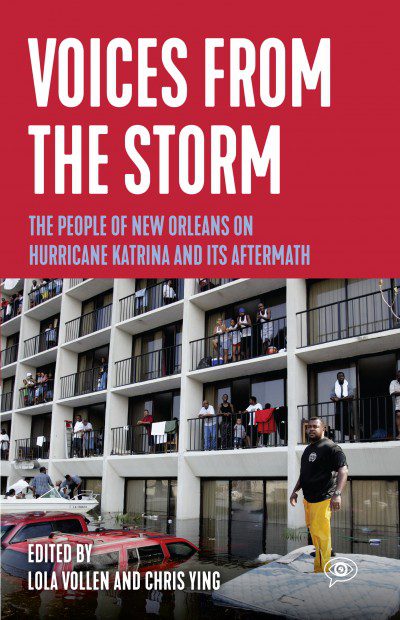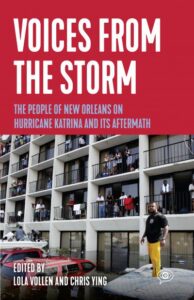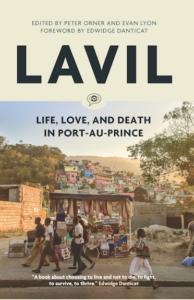The Voice of Witness book series amplifies the stories of people directly impacted by—and fighting against—injustice. We use an oral history methodology that combines ethics-driven practices, journalistic integrity, and an engaging, literary approach.
The books explore issues of inequity and human rights through the lens of personal narrative. Each project aims to disrupt harmful narratives by supporting historically marginalized or silenced communities to tell their own stories in their own words.
Book clubs are useful tools for engaging and interacting with these oral histories and the issues they highlight. Find our handout with guidance on planning and facilitating one here.
Use the questions below to start a book club for Voices From the Storm: The People of New Orleans on Hurricane Katrina and Its Aftermath.

Discussion Questions:
- Narrator Patricia Thompson says, “The problems that we had in New Orleans did not start with the hurricane.” Based on the stories in the book, what are some of the subtle, and not so subtle ways you think race and racism impacted people’s experiences of
Hurricane Katrina? - Renee says that although the storm was a Category 5 and prompted a mandatory evacuation, many people didn’t evacuate because they couldn’t afford to. Whose responsibility do you think it is to evacuate people from a storm? How did that play out before, during, and in the aftermath of the storm? What social conditions contributed to this?
- When Anthony tells the story of saving the drowning kids, he stipulates that he is usually “a low-life motherfucker.” How does Anthony’s story impact your thinking about the dominant narrative about heroes and heroism?
- Anthony says that he looted during the storm, but that he was “doing it for a good thing.” Discuss the media coverage of Katrina related to the use of the terms “survivor” and “looter.” In images and print, what were some of the factors that determined which term
was used, and why? For example, how did the intended audience impact these choices? - Dan describes prisoners being left in their jail cells to die during the storm. Does this connect to the way prisoners are viewed and treated on a broader social scale? If so, how?
- Rhonda says that when she and her family got to the Mississippi River Bridge, aid workers were “throwin’ the food to you like you was dogs.” How did this affect Rhonda and her family? What does the aid worker’s treatment of the survivors signify on a
broader scale? Discuss the possibilities. - Kalamu describes the reporting and media coverage as being racially biased, focusing on white neighborhoods while ignoring the black, Honduran, and Vietnamese populations. Can you cite examples of this from your own community? What are some of the
consequences of this kind of reporting? - Daniel says in his narrative that New Orleans was already a “dangerous city,” and that people’s fear after the storm was compounded by the pre-existing fear of crime. Cite examples from the book that confirm or contradict his observation.
- Why do you think the National Guard officers seemed “afraid” of Abdulrahman? Was his “profiling” similar or different from the other narrators in the book? How did his story reflect the political discourse and/or national mood in 2005?
- How has reading Voices from the Storm shaped how you understand the events that took place during and after Hurricane Katrina? Were you surprised by the stories, or did they confirm what you already understood about the crisis? How has the story of Katrina
continued to unfold in the ensuing years?



